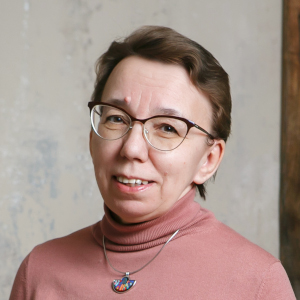ISSN: 2073-2635
eISSN: 2949-270X
eISSN: 2949-270X

Associate Professor of the Department of Psychology of Education and Pedagogy, Faculty of Psychology, Lomonosov Moscow State University
On October 3, 2022, the IV scientific readings dedicated to the memory of Pyotr Yakovlevich Galperin (October 02, 1902 — March 25, 1988) and dedicated to the 120th anniversary of his birth were held at the Faculty of Psychology of Lomonosov Moscow State University.
Background. The article discusses the issue of the psychological foundations of the content and methods of school teaching on the example of a mathematics course at primary school. Objectives. The study focuses on the pedagogical and psychological analysis of Ya.I. Abramson’s programme in mathematics, based on the theory of the gradual formation of mental actions and concepts by P.Ya. Galperin.
Methods. Theoretical analysis of publications reflecting the results of using the author’s mathematics programme in school practice.
Results. Based on L.S. Vygotsky’s ideas about the relationship between learning and mental development and the theory of the gradual formation of mental actions and concepts by P.Ya. Galperin, a scientific and psychological substantiation of Ya.I. Abramson’s original programme in mathematics for teaching primary schoolchildren is provided. The research also provides a brief description of the programme followed by a psychological analysis of the results of testing in Moscow schools. This educational programme has been shown to be highly effective.
Conclusions. The data obtained serve as practical confirmation of the effectiveness of training based on the third type of orientation and learning in the theory of P.Ya. Galperin. In addition, they clearly demonstrate the correctness of P.Ya. Galperin’s position on the need to highlight the subject matter of the area being studied from the first steps of school education, which, in turn, once again illustrates the heuristic potential of P.Ya. Galperin’s general psychological theory and the possibility of its application to various areas of social practice, primarily in solving educational problems.
Background. The article is dedicated to the 155th anniversary of the birth of Vsevolod Petrovich Kashchenko (1870–1943) — Russian and Soviet teacher, defectologist, public figure, specialist in the field of education and training of children with developmental disorders and disabilities, the founder of a unique medical and pedagogical institution — a sanatorium-school for defective children (1908), which contributed to the emergence and widespread distribution of a network of special correctional institutions for children with disabilities in subsequent years.
Objective. The article is focused on the restoration of scientific and biographical data concerning the contribution of V.P. Kashchenko to the creation of higher defectological education in Russia.
Methods. Theoretical methods are applied to the analysis of scientific literature on defectology (correctional pedagogy) and related disciplines. Biographical materials, as well as original works of V.P. Kashchenko, which reflected the main events related to the training of defectologists, served as sources for this historical and pedagogical study.
Results. The steps taken by V.P. Kashchenko in the pre-Soviet and Soviet periods to organize higher defectological education in our country are presented. Particular attention is paid to the analysis of curricula for training the future specialists in their work with children with special needs. V.P. Kashchenko’s contribution to the development of defectological education is assessed on the basis of the works of well-known specialists in the field of abnormal childhood.
Conclusions. V.P. Kashchenko entered the history of pedagogical science as one of the organizers of higher defectological education in Russia. The ideas developed by V.K. Kashchenko about the objective need to create a network of institutions engaged in training specialists for the education and upbringing of children with disabilities were further developed. They led to the emergence of centres of higher defectological education throughout the country. The appeal to the legacy of V.P. Kashchenko is becoming especially relevant in connection with the spread of inclusive education and, as a consequence, the growing need for qualified teaching staff.


